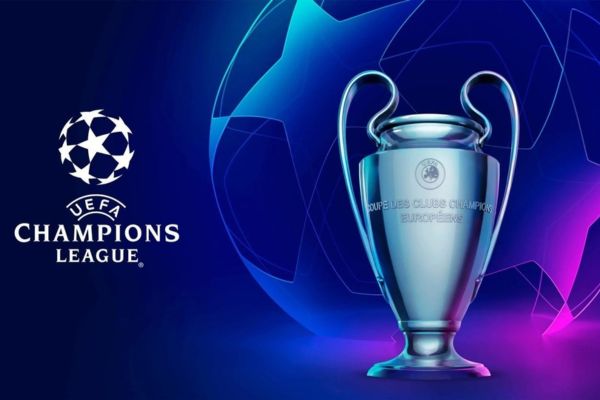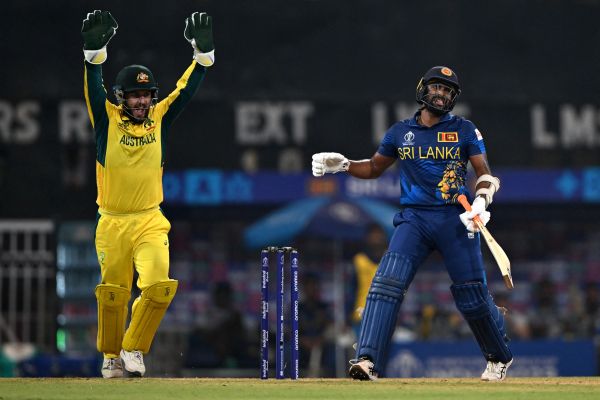The UEFA Champions League shines as the most prestigious club tournament on the planet!
This annual spectacle brings together Europe’s elite teams in electrifying matches that capture the attention of billions of fans. Have you ever wondered how the magic of the Champions League works?
Or which teams have a real chance of lifting the iconic “big-eared” trophy? In this complete guide, we unveil the secrets of this fascinating competition, from its history to how to follow every moment of the current season.
1. What is the Champions League?
Born in 1955, initially called the European Champion Clubs’ Cup, the competition originally brought together only the national champions from each country.
It underwent a dramatic evolution in 1992, adopting a group stage format and its current name. Another major transformation occurred starting with the 2024-2025 season, introducing a new league phase format.
The importance of the Champions League on the world stage is undeniable, considered the pinnacle of club football. Winning this tournament represents not only sporting glory but also international prestige and historical recognition for any team.
UEFA (Union of European Football Associations) organizes the competition, supported by major global sponsors over the years, including names like Mastercard, Heineken, PlayStation, and Adidas.
These commercial partnerships help transform the Champions League into a global product that generates billions annually and attracts record audiences across all continents.
2. Competition Format (from 2024-2025 season onwards)
The qualification system primarily rewards Europe’s strongest leagues according to the UEFA coefficient ranking, but also includes paths for champions of mid-ranked and lower-ranked leagues, plus the winners of the previous season’s Champions League and Europa League.
The competition structure includes:
- Qualifying Rounds: Held during the summer (June-August), involving teams from lower-ranked leagues and some non-champions from mid-ranked leagues, vying for spots in the league phase.
- League Phase: This replaces the old group stage. 36 teams compete in a single league format. Each team plays 8 matches (4 home, 4 away) against 8 different opponents determined by a draw based on seeding pots. All results contribute to one overall league table.
Knockout Phase:
-
- The top 8 teams in the league table qualify directly for the Round of 16.
- Teams finishing 9th to 24th enter a Knockout Phase Play-off round (two legs, home and away) to determine the other 8 teams advancing to the Round of 16.
- Teams finishing 25th to 36th are eliminated from European competition for the season.
- From the Round of 16 onwards, the competition proceeds with two-legged knockout ties (Quarter-finals, Semi-finals) until the single-match final.
Calendar Outline:
- Qualifying: June – August
- League Phase: September – January (matches typically on Tuesdays, Wednesdays, and occasionally Thursdays during exclusive weeks)
- Knockout Play-offs: February
- Round of 16: February – March
- Quarter-finals: April
- Semi-finals: April – May
- Final: Late May / Early June
3. Participating Teams
The competition features giants like Real Madrid, Barcelona, Manchester City, Bayern Munich, and Liverpool almost every year, alongside other top clubs from across Europe.
New participants and surprising runs always renew interest each season.
The 36 spots in the league phase are allocated based on:
- Performance in national leagues (the highest-ranked leagues get more spots).
- The winners of the previous Champions League and Europa League.
- Two “European Performance Spots” awarded to the associations whose clubs collectively performed best in the previous season’s UEFA competitions.
- Winners emerging from the qualifying rounds.
Top leagues like England, Spain, Germany, and Italy typically have at least 4 representatives. France and the Netherlands also usually secure multiple spots, with teams from Portugal, Belgium, Scotland, Austria and others also featuring.
Qualification via winning a national cup generally leads to the Europa League, not the Champions League directly.
4. Where to Watch the Games
Broadcasting rights vary significantly by region. Major broadcasters across Europe include TNT Sports (UK), DAZN (Germany, Italy, Spain, etc.), Sky Sports (Germany, Italy, UK), Canal+ (France), beIN Sports, Movistar (Spain), and many others. In the Americas, broadcasters like CBS/Paramount+ (USA), TNT Sports/Max (Latin America), and DAZN (Canada) hold rights.
Streaming platforms have become essential for Champions League coverage. Services such as Paramount+, Max, DAZN, Amazon Prime Video (in certain countries), Stan Sport (Australia), and others offer live broadcasts, often with extra features like replays and analysis, depending on your location.
Some countries may have free-to-air broadcasts of selected matches. Official UEFA channels (website, YouTube) offer free highlights shortly after games conclude.
5. Records and Statistics
Real Madrid dominates Champions League history with an impressive 14 titles (as of 2024), followed by AC Milan with 7. Liverpool and Bayern Munich each have 6 titles, while Barcelona has 5.
Among the top scorers, Cristiano Ronaldo leads with 140 goals, followed by Lionel Messi with 129 (records subject to change as active players continue).
Names like Robert Lewandowski, Karim Benzema, and Raúl González also feature prominently among the competition’s greatest goalscorers.
Fascinating records include the biggest margin of victory (8-0, achieved by Liverpool vs Beşiktaş and Real Madrid vs Malmö), the highest-scoring game (12 goals, Borussia Dortmund 8-4 Legia Warsaw), and the player with the most appearances (Cristiano Ronaldo, 183 matches). These numbers demonstrate the grandeur and intensity that define the tournament.
6. Prize Money and Values
The financial rewards are substantial. A participating club receives a starting fee, with additional bonuses earned for wins, draws, reaching each knockout stage, and based on their UEFA coefficient ranking and the TV market pool share. The eventual winner can potentially earn well over €100 million across the campaign.
UEFA distributes over €2 billion annually among the participating clubs in the Champions League cycle, highlighting the competition’s immense economic power.
The financial impact extends beyond prize money. Participation boosts revenue from ticket sales, merchandising, and sponsorships, while also increasing the club’s global profile, squad value, and ability to attract top players.
7. Final Stadium
The final is held at a pre-selected elite stadium in Europe.
- The 2025 Final will take place at the Allianz Arena in Munich, Germany (Home of Bayern Munich) on May 31, 2025. This modern stadium, known for its colour-changing facade, has a capacity of around 75,000.
- The 2026 Final is scheduled to be held at the Puskás Aréna in Budapest, Hungary.
UEFA selects final venues years in advance, evaluating infrastructure, capacity, accessibility, and experience in hosting major events.
Only stadiums meeting UEFA’s highest standards (previously Category 4, now simply referred to as elite) are considered. Cities like London, Paris, Madrid, Rome, Berlin, Lisbon, and Istanbul have hosted memorable finals. Wembley Stadium in London has hosted the most finals (8 times, including 2024).

8. Champions League vs. Other Competitions
The Champions League stands above the UEFA Europa League and the UEFA Conference League in terms of technical level, prestige, and prize money.
The Europa League features high-quality teams, including those finishing just outside UCL spots in top leagues and winners of domestic cups.
The Conference League, introduced in 2021, provides European opportunities for teams from a wider range of leagues, particularly those who might not regularly reach the other two competitions.
Compared to continental tournaments like South America’s Copa Libertadores or the AFC Champions League in Asia, the UEFA Champions League stands out for its unparalleled financial power, global audience reach, and concentration of the world’s best players and wealthiest clubs.
9. FAQ
1. What are the days and times of the games?
Games in the League Phase and Knockout Stage are traditionally played on Tuesdays and Wednesdays. Under the new format, some League Phase games (during exclusive weeks) may also be played on Thursdays.
Kick-off times are generally standardized at 18:45 and 21:00 Central European Time (CET/CEST). Your local time will vary based on your time zone and daylight saving rules.
2.How does the away goals rule work?
UEFA abolished the away goals rule for all its club competitions starting from the 2021-2022 season. If a two-legged knockout tie ends level on aggregate goals after the second leg, the match goes directly to 30 minutes of extra time. If the score is still level after extra time, a penalty shootout determines the winner.
3.What are the main streaming platforms to watch the Champions League globally?
This depends heavily on your region. Major global or multi-regional platforms include DAZN, Paramount+, Amazon Prime Video, Max, beIN Sports Connect, and BT Sport/discovery+ (UK), among others.
Check local listings for your country’s specific rights holders. UEFA.tv often provides highlights.
4.How much does the Champions League winner earn?
The club winning the final receives around €20 million specifically for that victory. However, accumulating prize money from the starting fee, league phase results (wins/draws), coefficient ranking, market pool, and progression through the knockout rounds, a champion club can earn a total sum ranging significantly, potentially between €80 million and €130 million or more, depending on their performance and coefficients. The total distribution to all clubs exceeds €2 billion per season.
5.How does a team qualify for the Champions League?
Qualification primarily occurs via performance in national leagues from the previous season. The highest-ranked leagues get the most spots.
Additional automatic spots are granted to the reigning Champions League winner and the Europa League winner. Remaining spots are filled through multi-stage qualifying rounds held in the summer, involving league champions and non-champions from UEFA’s member associations. The new format also includes two ‘European Performance Spots’.
10. How to Follow the Champions League
Official UEFA apps (like the UEFA Champions League Official app) offer complete coverage with live scores, statistics, line-ups, news, and notifications. Tools like these allow you to follow multiple games simultaneously on your smartphone.
Social media provides immersive coverage. Official Champions League accounts on platforms like Instagram, , Facebook, and YouTube offer highlights, behind-the-scenes content, player interviews, and real-time updates. Following club accounts and sports news outlets also enhances the experience.
The official UEFA website (UEFA.com) is the definitive source for the competition calendar, schedules, standings, regulations, statistics, and news. Mark key match dates in your calendar to ensure you don’t miss any decisive moments.
Conclusion
The Champions League transcends its status as a mere sporting competition to become a global cultural phenomenon.
From its origins showcasing national champions to the current billion-euro spectacle featuring a dynamic league phase, the tournament continues to enchant generations of fans with unforgettable moments.
Whether you’re a passionate supporter or a casual observer, the magic of European Champions League nights offers incomparable emotions.
Now that you’re familiar with the key aspects of this extraordinary competition, particularly its exciting new format, you’re ready to experience every moment with a renewed level of appreciation and understanding. Prepare yourself for another season of drama, twists, and glory that only the world’s greatest club competition can provide!


